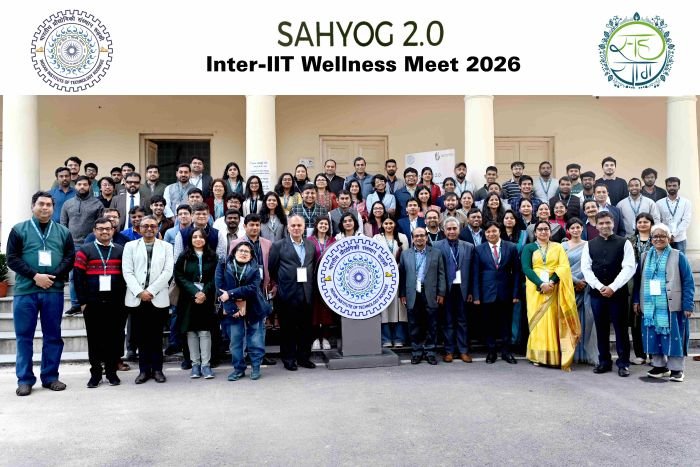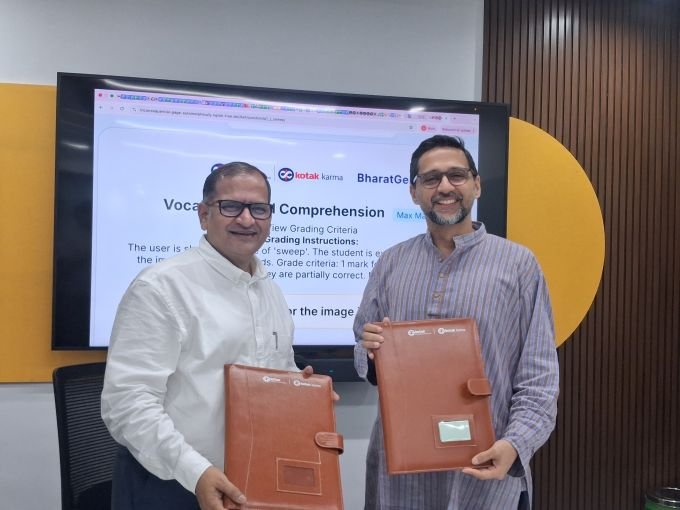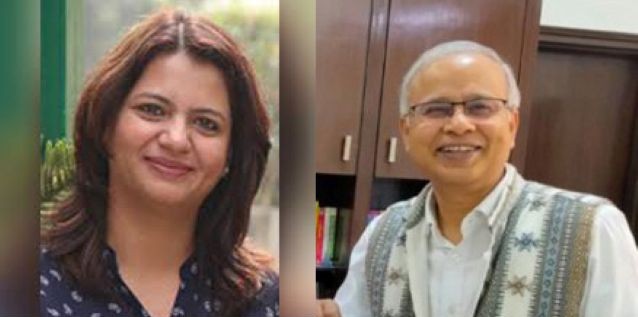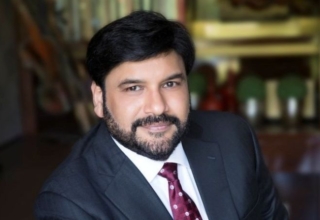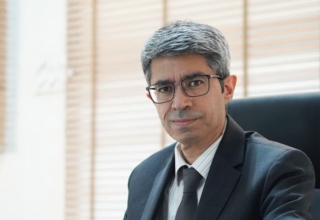

Ashok Vyas, President, All India Association of Private Colleges (AIAPAC) who is also the founder-director of the Sh Rama Kant Vyas Mahila Shikshak Prashkshan Mahavidyalaya, Jhunjhunu Rajasthan spoke to Autar Nehru after he shared dais with union HRD minister Dr Ramesh Pokhriyal Nishant at the inauguration function of the newly consturcted state-of-the art 4-storeyed office building of National Council for Teacher Education (NCTE) in Dwarka 10, New Delhi
We have been given a bad name for no fault of ours. Nobody has taken a look at the system which makes us helpless.
Your association will also get an office space in the new building, does that make you happy?
Of course, we have requested for it and as the only apex association of private teacher education institutes, it will facilitate closer cooperation between two of us.
You also talked about sub-committees that have been formed by NCTE. Is it part of this already happening cooperation?
Earlier we only used to meet in courts and through litigations. But for the past six months or so we have entered into a dialogue with the NCTE people and this method of engagement has been encouraging so far and it is in this context we talk about these sub-committees. Three sub-committees have been formed recently to specifically look into our long pending demands. One subcommittee has been constituted for curriculum review, second for ensuring fee uniformity nationally and the third for looking into current system of student internships.
How will these sub-committees help your cause?
We have been given a bad name for no fault of ours. Nobody has taken a look at the system which made us helpless. The degree programs in teacher education, B Ed and M Ed, are being taught in accordance to a curriculum devised in 1996 and since then it hasn’t been updated even once. The sub-committee which among other experts also includes some serving private school principals, will review the current curriculum and make recommendations for relevant changes and updatations. Now if curriculum is recent, the quality will also be better.
The issue of fee uniformity for teacher education courses is one of the fundamental issues that is making our growth and sustenance difficult. Different states have different fee for the same course. The fee ranges from as less as Rs 12,000 a year in some states to Rs 80,000 in others. As such aspirant students from various states move from one to another for cheaper options. As the states have to reimburse 60% through scholarships, they keep it low. We have independently got calculated the average cost of imparting training to a student, which comes to Rs 1, 92,000 per year per student. Now when the disparity is to such an extent and again from state to state, how will, we work?
The issue of 96-day mandatory internship as part of bachelors degree program is again something that has been a source of our heartburn. As of now, student has the freedom to choose the place of internship and the TET college has no role either in allotment or supervision. A lot of students do it in their leisure time near their homes and often take the whole academic session to get the completion certificate. This spillover of students for the completion of the remaining class work and curriculum into next academic year further burdens our colleges with unpaid cost. The third committee will investigate this issue.
Okay. That’s optimism. But at the same time, while all the time we keep hearing that teacher vacancies upto 30-40% exist or there are para or guest teachers, and we don’t get teachers, doesn’t this also make a statement about you people as well?
I think we need to understand that there is no dearth of trained teacher candidates in this country. Every year about 19.5 lakh students graduate from country’s more than 18500 TEIs. The problem is in the recruitment process, which doesn’t take place regularly. At times, the government recruitment of teachers takes place after five years. So, again it is the system that produces this shortage and not the supply.
But in real terms what is the extent of teacher jobs in India?
You see there are about 1.5 million schools in India and suppose each of them needs 10 teachers, then on a given time you will be needing some 1.5 Cr teachers and given that the attrition rate is 20-25% due to retirement etc, you would be needing 2 Cr teachers minimum. There is a need of continuous cyclic recruitment process by the schools or the their departments and if that happens the demand supply will not remain in conflict as it is happening now.
Low pass percentage in TET exam has become another definition of the teacher education graduates and it has contributed to low quality perception of private colleges?
In order to understand my answer, you have to look at the society. Parents want their children secure more than 90% in boards so that they get into best courses and colleges afterwards. Instead of education, it is coaching which is preferred to get there. And what these coaching companies do is promise a 90% for a student who obtains 60% in their pre-testing. And the student who was getting 90% in class if he doesn’t take coaching ends up below this 60% below eventually and loses trust. So, I want to tell there is something fishy which subverts the whole process. TET follows the same. The 3-hr exam places more value on general knowledge and coaching material than what they have learnt about teaching. So, most of the students just come to us to become eligible to sit in this exam with our certificate. Otherwise, most of the time they are preparing for it. TET has to reform if we want to help teacher education.
MHRD has started 4-year B Ed course. Is it good and will it impact your colleges in anyway?
In 2016, a similar move was made but it didn’t attract students. While I am appreciative of the government efforts at making teacher profession attractive for young people and starting it as a career choice at par with other professions, I still feel, unless you make the work life of a teacher aspirational, young people will not be attracted as it still among the last options. But if as I said recruitment process becomes regular and good teachers become a fashion statement, things will certainly look different for a multidisciplinary approach for teacher education. And our government also wants to export skilled teachers, for this it makes a lot of sense.
Lastly, there was an abortive move by NCTE through QCI to accreditate TEIs. Do you think, it hadn’t a place in strengthening quality?
We will welcome a body like NAAC anytime. But an entity which doesn’t have a legal sanctity in our scheme looked out of place. The concept of its parameters and process wasn’t acceptable.


